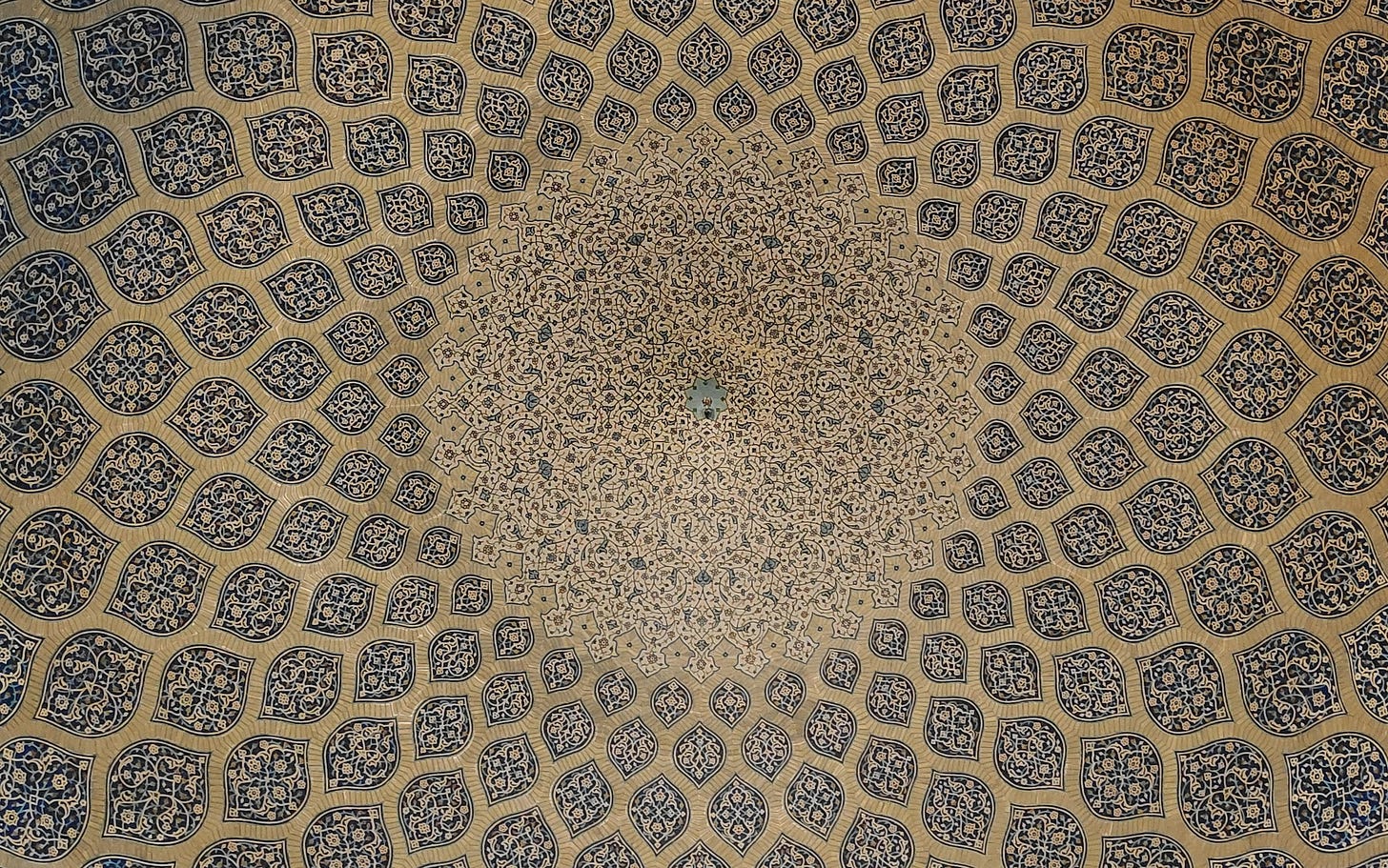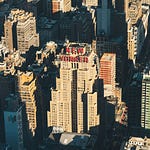
Misunderstanding Iran’s Ideological Nature Invites Endless Conflict
American B-2 bombers struck Iran’s uranium-enrichment sites at Fordow, Natanz, and Isfahan. President Trump called the raid successful. Tehran vowed retaliation.
Washington insists the raids sought to halt Iran’s march toward a nuclear weapon. No one in America supports a nuclear-armed Iran. Iran’s nuclear march is a real threat, but unilateral bombing rarely brings lasting stability; it breeds resentment and invites retaliation.
We look at Iran and see a country, but that simplified lens is short-sighted. Iran acts like a cause as much as a state, and when we fight a cause, we forfeit the momentum every strategist tries to preserve.
Because Iran sees itself both as a sovereign state and as a sacred mission, every rash strike feeds its cause; only disciplined patience denies its advantage.
Iran cannot defeat us militarily, but it doesn’t need to. It only needs to provoke us into endless conflict. It conducted limited strikes in response, but Tehran’s answer may come months or years from now; Iran has a long memory.
When they do respond, we must act with disciplined patience.
If they close the Strait of Hormuz, how do we respond? If a proxy kills US troops? If a cyber-strike paralyzes East Coast shipping overnight?
Disciplined.
Patience.
It’s not to say that we can’t act with appropriate force. But we won’t achieve national objectives by force alone.
To grasp why Iran acts like a cause, not just a country, we must start long before the revolution. Before the Shah. Before the CIA. We start with Persia; not a place on the map, but an idea of moral kingship and enduring memory. We start with the ruler who first fused power and reverence: Cyrus the Great.
Cyrus the Great and the Authority to Believe
Around 700 BC, a Hebrew prophet named Isaiah wrote a decree the Almighty spoke through him. He claimed that a foreign ruler, at the time unborn and unknown, would one day subdue nations and harness kings. He would free a captive people and rebuild their ruined city. The text named him directly: Cyrus. It was remarkable. No other foreigner is singled out like that in the Hebrew texts. And certainly not someone who wouldn’t be born for another 150 years.
We don’t know exactly how the name made it into the scrolls. But we do know what happened next.
In 539 BC, Cyrus the Great of Persia conquered Babylon, in what is now southern Iraq. At the time, Babylon was the most powerful city in the world. Its walls were legendary. Its temples massive. Its armies feared.
But Cyrus didn’t need to lay siege to the city. The priests of Babylon opened the gates. Cyrus walked in without bloodshed, declared himself king, and set the captives free, including the Jewish people, who had been exiled there for 70 years.
Rather than erase Babylonian culture, Cyrus did something rare: he preserved it. He didn’t burn the temples. He rebuilt them. He didn’t force anyone to worship his gods. Instead, he issued a decree, now carved into clay and housed in the British Museum. He declared that all people under his rule could worship freely, in their own languages, in their own lands. Some scholars call it the first human rights charter in recorded history. In 1971, the Shah of Iran presented a replica of the Cyrus Cylinder to the United Nations. The artifact is still on display at UN headquarters in New York, a 2,500-year-old document that helped shape modern human rights in governance.
Cyrus wielded political power through a moral framework. He legitimized his rule through divine-sanctioned tolerance, not fear.
Cyrus wasn’t just a conqueror. He was a strategist. He believed the Almighty gave him authority over the known world. He ruled through force when necessary, but through legitimacy whenever possible. His empire didn’t just stretch across continents. It was stitched together through tolerance, diplomacy, and something resembling vision.
Iran, once Persia, still draws from that heritage. Iran sees itself as a nation, but also an idea. One that mixes governance with belief.
Today’s Iran is built on an entirely different religion, but its political structure echoes the same fusion of moral authority and statecraft. Its constitution invokes divine authority. The Supreme Leader governs people both inside and outside the borders of Iran through law and their proclamation of truth.
So when we in America look at Iran and see only a hostile government, we miss the deeper architecture. Iran doesn’t see itself as just a state. It’s a symbol backed by thousands of years of belief that statehood and faith are separate but the same.
That fusion between divine purpose and political authority continues to shape revolution in Iran. Including the one we started.
The Day Democracy Died in Tehran
In 1953, Mohammad Mossadegh was the Prime Minister of Iran. He was elected by parliament, immensely popular, and bold. Mossadegh nationalized Iran’s oil, kicked out the British-owned Anglo-Iranian Oil Company (now BP), and demanded that Iranians control their own resources.
London and Washington panicked. Together, MI6 and the CIA launched a covert operation, code-named Operation Ajax, to remove Mossadegh from power.
The plan was old-school regime change. We bribed newspapers and paid thugs to stage fake riots. They worked with military officers loyal to the Shah, who had fled the country during the unrest. After just a few chaotic days, Mossadegh was arrested. The Shah returned in triumph, flown back like a king in exile.
To the West, the coup restored order, but many Iranians strongly objected.
They watched as Britain and America overthrew their democratically elected leader with foreign cash and royal approval. They saw that the Shah didn’t stand for Iran; he stood for Britain and America. And even though the oil kept flowing, anger simmered.
…
Fast forward 10 years.
In 1963, Iran’s Shah, Mohammad Reza Pahlavi, launched what he called the White Revolution. This initiative included land reform, women’s voting rights, and Western-style law. On paper, it looked modern. In practice, to many, it looked like Western intrusion dressed as reform.
A man named Ruhollah Khomeini objected to the Western influence. Before he was the face of a revolution, Khomeini was just a cleric with a sharp tongue and a sharper pen. In Khomeini’s eyes, the White Revolution looked like surrender.
He saw the reforms as a betrayal, not just of Islam, but of Iran itself. The Shah wasn’t acting alone. American advisors were everywhere. Foreign capital was reshaping Tehran. And then came the final insult: a law granting US military personnel full legal immunity inside Iran. If an American soldier shot an Iranian in the street, Khomeini warned, no court in the country could touch him.
He stood in the pulpit and thundered:
“They have reduced the Iranian people to a level lower than that of an American dog.”
The Shah’s government didn’t take long to respond. In 1964, they kicked Khomeini out. First to Turkey. Then to Iraq. Eventually, to a small village outside Paris. But exile didn’t silence him.
…
From abroad, Khomeini recorded sermons and manifestos onto cassette tapes. Those tapes were smuggled into Iran by the thousands, hidden in books, tucked into luggage, passed hand-to-hand in marketplaces and mosques. Khomeini didn’t need a militia. He had a message.
That message was simple: the Shah wasn’t just corrupt. He was illegitimate. Real authority, Khomeini argued, didn’t come from votes or tanks. It came from God and from those trained to interpret His law. This wasn’t just theology. In Shia Islam, suffering for truth isn’t failure. In exile, Khomeini turned his theology into a blueprint. Velayat-e Faqih: Guardianship by the Islamic jurist. In other words, rule by the clergy over the state.
Not just spiritual guidance. Political rule, or an Islamic government backed by divine logic and revolutionary will. The state was built to absorb punishment and convert it into legitimacy.
Iran’s people are not all the same. They hold a wide range of political, cultural, and religious beliefs, many of which differ sharply from the views of their government.
But by the time Khomeini returned to Iran in 1979, millions were ready to receive him not as a man but as a symbol. The monarchy collapsed. The revolution didn’t just change the regime; it changed the idea of Iran itself.
Persia became Iran. Cyrus became Khomeini. But the idea stayed the same. Iran sees itself as a country of borders, and as a religion inside and outside of them. None of this excuses Iran’s actions. The regime sponsors terror, represses its people, and destabilizes the region. But that’s exactly why misunderstanding it is so dangerous. The more crudely we respond, the more clearly we play the part they have written for us.
So we return to our question:
Is it possible to fight Iran without fighting Islam?
The Cart Before the Horse
Iran’s current political structure directly inherits the ancient Persian fusion of divine authority with state governance embodied by Cyrus the Great. Cyrus legitimized his rule by weaving morality, tolerance, and religious sanction. These qualities solidified Persian power for centuries.
Modern Iran mirrors this model: its leaders invoke spiritual legitimacy to justify actions inside and outside their borders. This isn’t politics; it is an expression of their identity.
So…maybe we’re still asking the wrong question. Instead of asking whether we can fight Iran without fighting Islam, the real question is whether we NEED to.
We are not under siege. Iran is not landing troops on our shores or circling bombers over our cities. Economically, militarily, and geographically, we hold every advantage. No clock is running out.
On Saturday, we chose urgency over patient discipline; now we must step back and reclaim that discipline.
We are committed to Israel, but Israel is not defenseless. They are not blameless in choosing to escalate. We don’t have to choose to let Israel drag us into a shooting war. We can maintain our commitment to Israel while defining our own interests, our own timeline, and our own limits.
Again, we are in a position of strength. In Eastern thought, that’s when we wait. Not because we are weak or passive, but because we are disciplined. The side with leverage doesn’t chase shadows. It observes, lets the opponent move first, and watches them spend their effort and overreach.
In America, we confuse patience and restraint with weakness. We think power only matters when the bombs are falling. That’s the cart before the horse.
When Tehran answers, and if we choose to keep fighting, what would victory even look like? We could raze the nation of Iran to the ground today, but destruction is not victory. Would we seek a toppled regime? A new government that still draws legitimacy from faith, just wrapped in different slogans? Would we fight the nation, or the shadow?
To achieve our national objectives, we must first observe. Then orient. Then bring decisive effort to bear at the point of advantage.
If our goal is stability and not empty symbolism, then we won’t achieve national objectives by force alone. It requires leverage, clarity, and diplomacy with teeth. Military action might play a role, but diplomacy and disciplined patience must carry the weight.
…
Iran is still a nation, still the shepherd of a religion. They are separate, and they are the same. Iran and Islam are intertwined. And now, for the first time in decades, the direct target of American bombs.
Iran will respond, and when it does, America’s path forward is clear. Iran cannot defeat us militarily, but it doesn’t need to; it only needs to provoke us into endless conflict.
We must adopt disciplined patience, clearly define our strategic objectives, and exercise diplomacy backed by strength, not impulsive force.
Our efforts must advance national interests, not the aims of those who provoke us.
May God bless the United States of America.
Music from #Uppbeat
https://uppbeat.io/t/arnito/derniere-brise
License code: 2VCROBGWUMYONCUB













Share this post